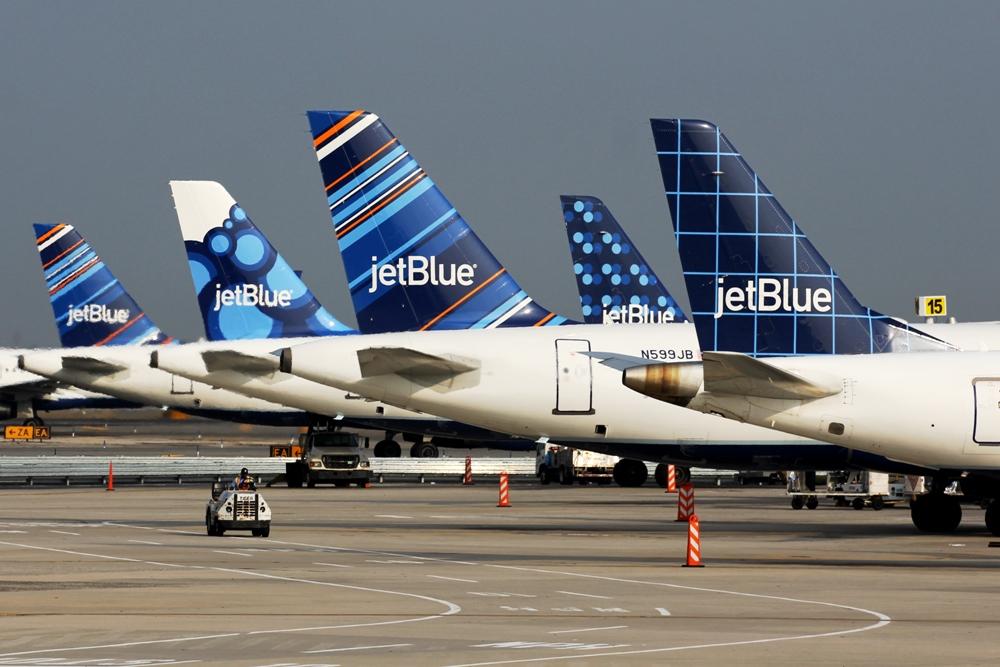
JetBlue Airways reduced its planned capacity for the 2020 third quarter (Q3) below previously announced levels, despite observing a moderate demand improvement in recent weeks.
New York-based JetBlue said in a Sept. 22 regulatory filing it now expects Q3 capacity to be down 55% from 2019’s levels, compared to a prior estimate of down 45%.
Despite the schedule reduction, JetBlue said it has seen “modest improvement in revenue and bookings trends” since early August, mostly driven by leisure travel and visiting friends and relatives. As a result of the better than expected demand, the company expects its Q3 average daily cash burn to be toward the lower end of a previously estimated range of between $7 million and $9 million.
JetBlue’s report of improved bookings aligns with recent disclosures from other U.S. carriers. Southwest Airlines, for example, on Sept. 16 lowered its Q3 cash burn estimate, while Delta Air Lines CEO Ed Bastian said during a recent virtual town hall that demand has improved in September from August.
Still, some analysts remain pessimistic that demand will continue to strengthen, and airline executives have stressed the uneven nature of the recovery to date. “As we said back in July, we expect this to be choppy,” Delta CFO Paul Jacobson said during a Sept. 9 investor webcast hosted by Cowen & Co. “And we expect that we’re going to see ebbs and flows off the lows, but we’re still well, well behind where we should be.”
U.S. passenger throughput screened by TSA was down 66% year-over-year as of Sept. 20, according to Cowen analyst Helane Becker, a slight improvement from July and August, which saw declines of 73% and 70%, respectively. Still, the vast bulk of that traffic is domestic and leisure-oriented, and airlines and analysts both estimate that U.S. corporate and international traffic levels still remain down over 90% from 2019.
Because domestic and leisure markets have recovered at a faster pace than international and corporate, Credit Suisse analyst Jose Caiado said in a recent client note that he expects low-cost operators like JetBlue and Southwest will have a speedier recovery from the COVID-19 crisis than their network airline counterparts. Longer-term, Caiado believes there will likely be some degree of “structural demand impairment” in corporate travel markets, resulting from the widescale adoption of remote-work and video-conferencing apps.
In the more immediate future, U.S. carriers must contend with the looming expiration of the federal government’s Payroll Support Program (PSP) on Oct. 1, which airlines have warned will force them to furlough tens of thousands of employees beginning in October unless the U.S. Congress acts soon to renew the program. Two Republican senators proposed a standalone bill on Sept. 21 to extend the PSP until March 31, 2021, although it isn’t clear whether that proposal has the support of the Democrat-controlled House. Asked about whether House Transportation Committee chairman Peter DeFazio (D-Oregon) supports the Senate proposal, an aide for DeFazio told Aviation Daily on Sept. 22 that the congressman is still pushing for a PSP extension to be included as part of a larger COVID-19 relief package.





